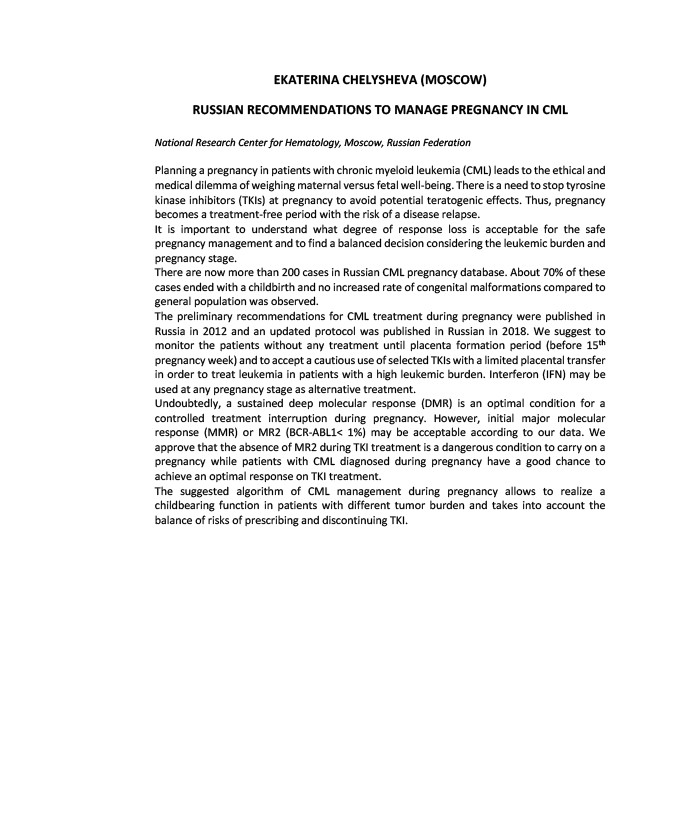
EKATERINA CHELYSHEVA (MOSCOW)
RUSSIAN RECOMMENDATIONS TO MANAGE PREGNANCY IN CML
National Research Center for Hematology, Moscow, Russian Federation
Planning a pregnancy in patients with chronic myeloid leukemia (CML) leads to the ethical and
medical dilemma of weighing maternal versus fetal well-being. There is a need to stop tyrosine
kinase inhibitors (TKIs) at pregnancy to avoid potential teratogenic effects. Thus, pregnancy
becomes a treatment-free period with the risk of a disease relapse.
It is important to understand what degree of response loss is acceptable for the safe
pregnancy management and to find a balanced decision considering the leukemic burden and
pregnancy stage.
There are now more than 200 cases in Russian CML pregnancy database. About 70% of these
cases ended with a childbirth and no increased rate of congenital malformations compared to
general population was observed.
The preliminary recommendations for CML treatment during pregnancy were published in
Russia in 2012 and an updated protocol was published in Russian in 2018. We suggest to
monitor the patients without any treatment until placenta formation period (before 15th
pregnancy week) and to accept a cautious use of selected TKIs with a limited placental transfer
in order to treat leukemia in patients with a high leukemic burden. Interferon (IFN) may be
used at any pregnancy stage as alternative treatment.
Undoubtedly, a sustained deep molecular response (DMR) is an optimal condition for a
controlled treatment interruption during pregnancy. However, initial major molecular
response (MMR) or MR2 (BCR-ABL1< 1%) may be acceptable according to our data. We
approve that the absence of MR2 during TKI treatment is a dangerous condition to carry on a
pregnancy while patients with CML diagnosed during pregnancy have a good chance to
achieve an optimal response on TKI treatment.
The suggested algorithm of CML management during pregnancy allows to realize a
childbearing function in patients with different tumor burden and takes into account the
balance of risks of prescribing and discontinuing TKI.